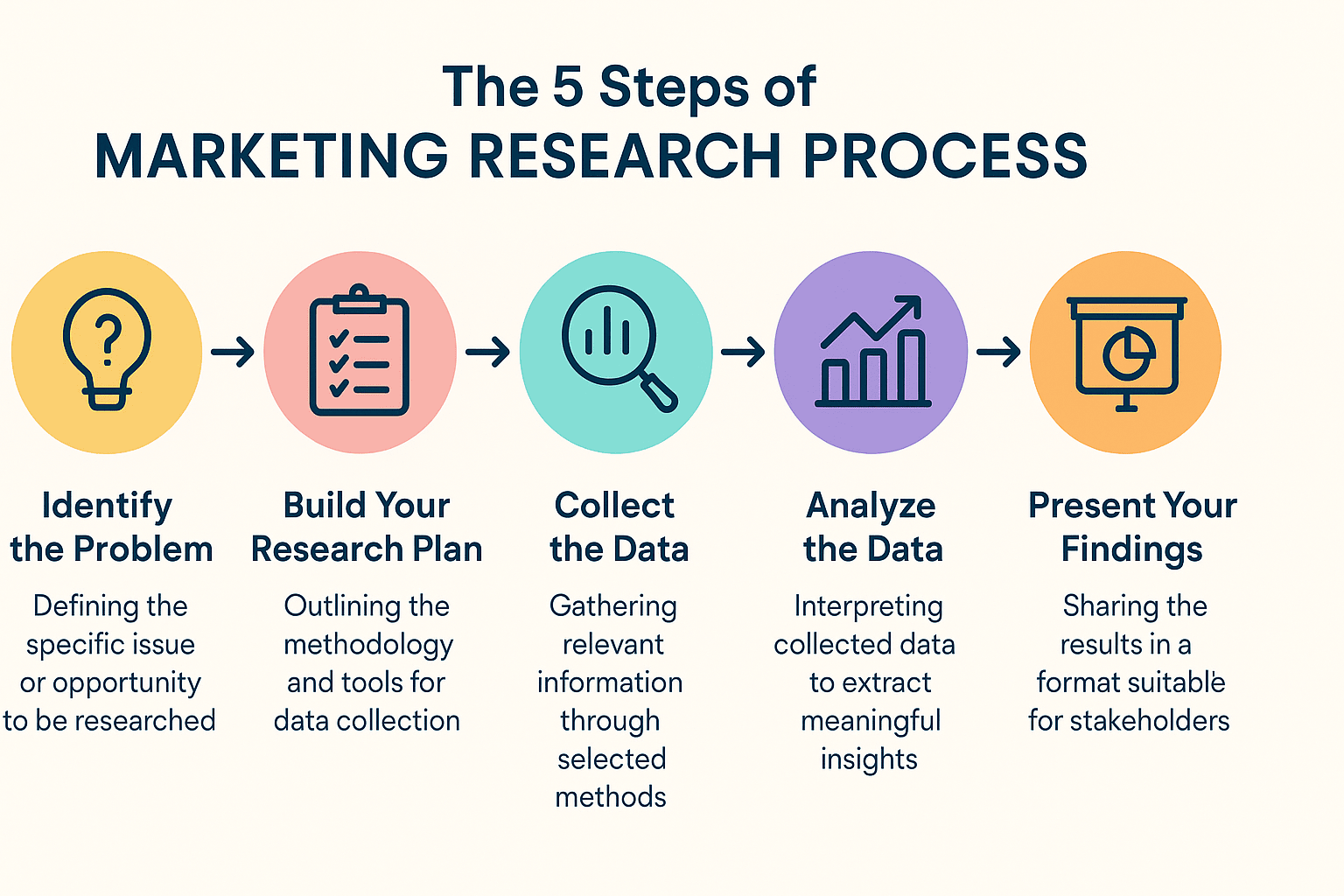Knowing how to choose marketing research topics is an essential skill for students and professionals seeking to produce impactful, relevant work. With the marketing landscape rapidly evolving, shaped by AI, sustainability, and shifting consumer behaviors, topic selection requires a thoughtful mix of creativity, strategic focus, and trend awareness.
This guide offers practical strategies for narrowing your focus, integrating 2025’s key marketing trends, and aligning your topic with either academic or professional outcomes.
Understanding What Makes a Strong Marketing Research Topic
Marketing research topics explore how businesses communicate value, influence consumer behavior, and adapt to technological advancements. Effective topics typically focus on areas such as digital marketing, brand positioning, sustainability, and consumer psychology.
An ideal topic should:
- Address a gap in the existing literature.
- Reflect emerging or ongoing industry trends.
- Provide practical or theoretical value.
Example Topics:
- AI-Driven Personalization in E-commerce
- Greenwashing in Sustainable Branding
6 Practical Tips for Narrowing Down Marketing Research Topics
1. Identify Your Interests and Strengths
Start with what excites you. Are you passionate about consumer behavior, ethical advertising, or data-driven marketing? Your enthusiasm will drive originality and deeper analysis.
Example: If you’re interested in sustainability, explore topics like The Effectiveness of Eco-Labels on Gen Z Purchasing Decisions.
2. Focus on Specific Subfields
Avoid overly broad topics like “social media marketing.” Narrow the scope using these frameworks:
- 5Ws Approach: Who (e.g., Gen Z), What (e.g., TikTok ads), Where (e.g., U.S. vs. Asia), When (e.g., post-COVID), Why (e.g., ethical concerns).
- Trend Alignment: Tie your topic to 2025 trends like AI-generated content or voice search.
Example: Replace Influencer Marketing with Micro-Influencer ROI in TikTok’s Algorithm Updates.
3. Assess Resource Availability
Verify that your topic is researchable. Use platforms like Google Scholar, Statista, and industry reports. For cutting-edge topics, seek access to synthetic datasets or analytics tools.
Example: For Quantum Computing in Ad Targeting, explore academic databases or AI research hubs.
4. Explore Uncovered Angles
Look for gaps in existing research. While AI in marketing is widely studied, few dive into Ethical Implications of AI-Generated Influencer Personas.
Use keyword tools like MarketMuse, Exploding Topics, or AnswerThePublic to uncover unique angles.
5. Align with Your Goals
Academic and professional research often require different approaches:
- Academic Focus: Theoretical depth and literature synthesis (Cultural Adaptation in Global Branding).
- Professional Focus: Practical outcomes and ROI (Predictive Analytics for Subscription-Based Customer Retention).
6. Evaluate Feasibility
Ensure your topic fits your time, budget, and scope. High-tech topics may require paid tools or collaborations.
Example:
- Real-Time Sentiment Analysis of Viral TikTok Campaigns → Requires tools like Brandwatch.
- Consumer Trust in Blockchain-Marketed Products → May involve original surveys or focus groups.
Leveraging 2025 Marketing Trends for Topic Selection
Trend 1: AI and Generative AI
AI is revolutionizing personalization, content creation, and decision-making.
Sample Topics:
- The Ethics of Using ChatGPT for Marketing Copywriting
- AI-Powered Predictive Analytics and Customer Lifetime Value
Trend 2: Sustainability and Green Marketing
Sustainability continues to shape consumer behavior, with 68% willing to pay more for green brands.
Sample Topics:
- Greenwashing vs. Authentic Sustainability Messaging
- Impact of Carbon-Neutral Certification on Brand Loyalty
Trend 3: TikTok and Short-Form Video
TikTok’s explosive growth offers a rich area for research into social commerce and virality.
Sample Topics:
- User-Generated Content Effectiveness: TikTok vs. Instagram Reels
- Algorithm Changes and Viral Marketing Campaign Success
Trend 4: Hyper-Personalization vs. Data Privacy
Marketers are balancing AI-driven personalization with increasing data regulation.
Sample Topics:
- Consumer Reactions to Dynamic AI Pricing Strategies
- GDPR Compliance in Cross-Border Personalized Marketing
Trend 5: Voice Search and Visual Commerce
Emerging technologies are transforming the buyer journey.
Sample Topics:
- Optimizing for Voice Search in Local Business SEO
- Impact of Augmented Reality Try-Ons on E-Commerce Conversions
Common Mistakes to Avoid
- Choosing Overly Broad Topics
- Avoid: Digital Marketing Trends
- Choose: SEO Strategies for Voice Search Optimization in 2025
- Ignoring Current Trends
- Avoid outdated ideas like Print Advertising Effectiveness
- Neglecting Ethics and Compliance
- Avoid research that skips critical issues like Data Privacy in Personalized Ads
Mastering the Art of Topic Selection
Learning how to choose marketing research topics requires a thoughtful balance of curiosity, strategic alignment, and trend awareness. By focusing on specific subfields, considering 2025’s marketing innovations, and assessing feasibility, you can create research that is both academically rigorous and professionally valuable.
Whether you’re exploring TikTok’s algorithmic shifts or ethical challenges in AI, your topic should reflect a deep understanding of today’s marketing landscape and tomorrow’s challenges.
